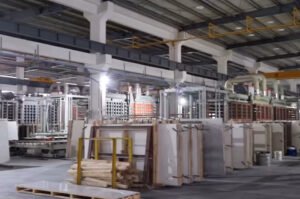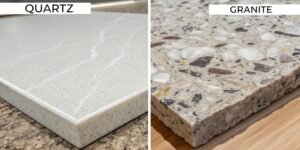Struggling to find a reliable quartz supplier? You worry about quality, delays, and hidden costs. This uncertainty puts your projects and reputation at risk.
To choose the right manufacturer, prioritize those with proven quality control, a diverse product range, transparent pricing, and reliable global logistics. A good partner offers excellent customer service and stands behind their product, ensuring your project's success from start to finish.

I've spent over a decade in this industry, helping partners like you navigate these choices. Choosing the right manufacturer is the most critical step for any project's success. It goes beyond the product; it's about building a partnership you can trust. Let's break down what truly matters.
Which quartz manufacturer is best?
Finding the "best" manufacturer feels impossible. You see countless options online, but you don't know who to trust. This confusion can lead to costly mistakes and project delays.
The best manufacturer isn't just about a brand name; it's the one that acts as your partner. Look for companies with extensive industry experience, a solid reputation, and dedicated customer support. They should be responsive and invested in your project's success.

Finding the best manufacturer means finding the best partner. A supplier just sells you a product, but a partner invests in your success. Over the years, I've learned that responsiveness and a willingness to solve problems are what set the great manufacturers apart. I remember a contractor in Canada who was concerned about the right edge profile for a tricky kitchen island design. We didn't just send him a spec sheet; I personally got on a call with him to discuss the options. We even connected him with a local installer familiar with our products. That's what a partnership looks like. It’s about being available to provide technical support and guidance whenever it's needed, long after the sale is complete.
What Defines a True Partner?
A true partner goes beyond the transaction. They offer support, transparency, and reliability. This builds a foundation of trust that is essential for long-term business relationships, especially in international trade.
| Trait | Supplier | Partner |
|---|---|---|
| Communication | Reactive, answers direct questions | Proactive, offers solutions and advice |
| Goal | Make a single sale | Build a long-term relationship |
| Support | Ends after payment | Continues through installation and beyond |
| Focus | Product features | Your project's overall success |
Which company is best for quartz?
Your designs demand specific looks, but many suppliers have limited stock. This forces you to compromise your vision or waste time searching for alternatives. It's frustrating and inefficient.
The best company offers a diverse product catalog with a wide range of colors, patterns, and slab sizes, including jumbo options. This ensures they can meet your specific design needs without forcing you to compromise on your project's aesthetic or technical requirements.
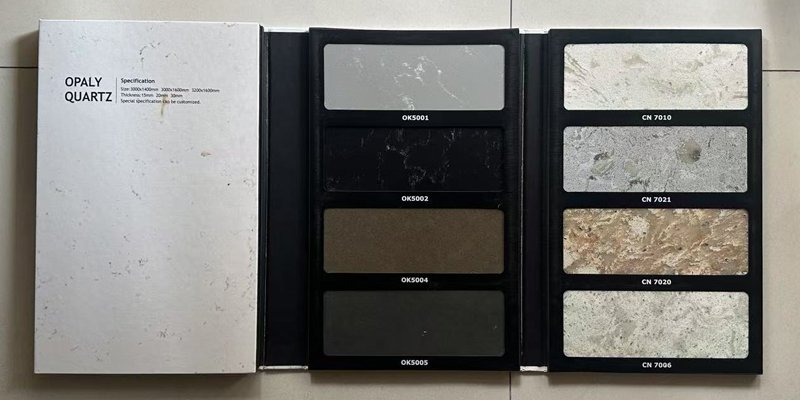
Your ability to deliver for your clients depends on your supplier's product range. A limited selection can kill a project's creative vision. I've always made it a point to invest in variety. A few years ago, I worked with a design firm in Europe on a high-end commercial project. They needed massive, seamless kitchen islands, which required jumbo-sized slabs. Many local suppliers couldn't provide them. Because we produce jumbo quartz in various thicknesses, we were able to fulfill their order perfectly. This not only saved their design but also streamlined their installation process. Always review a manufacturer's catalog closely. Look for collections like Calacatta with its dramatic veins, or simple, elegant pure white quartz. The best companies continuously innovate their product lines.
Key Product Range Considerations
A wide selection isn't just about colors. It includes different sizes, thicknesses, and finishes that can dramatically impact a project's budget and final look.
| Feature | Importance for Procurement Managers |
|---|---|
| Jumbo Slabs (e.g., 3200x1600mm) | Reduces seams for large surfaces like islands, creating a high-end look and easier installation. |
| Varied Thickness (2cm, 3cm) | Allows flexibility for different applications, from standard countertops to thicker, more substantial profiles. |
| Diverse Patterns | Caters to various design trends, from classic marble looks (Calacatta, Carrara) to modern concrete styles. |
| Multiple Finishes (Polished, Matte) | Provides options to match different aesthetic requirements, whether for a glossy or a subtle, modern finish. |
How to choose the right quartz?
Price tags can be misleading. A cheap quote might seem like a great deal at first, but it often hides poor quality that costs you more in maintenance and repairs later on.
To choose the right quartz, look beyond the price. Focus on value for money by understanding the materials used, like resin content and raw material purity. Ask for a cost breakdown to ensure you are getting a durable, long-lasting product that justifies its price.
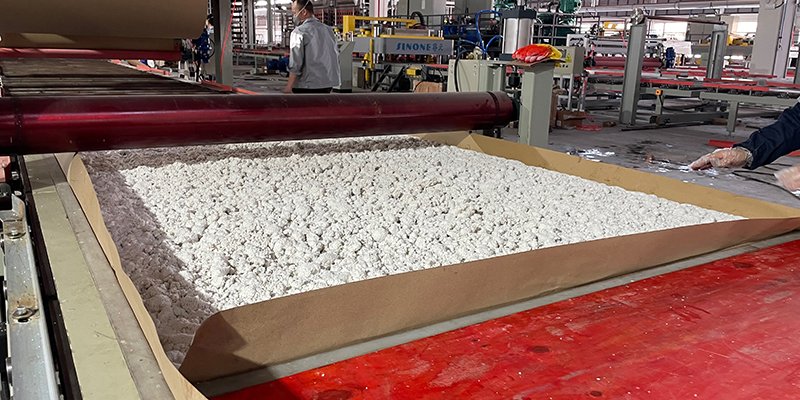
I always say that the price is what you pay, but value is what you get. Premium quartz is an investment in durability. I once had a customer from India who was just about to sign with a much cheaper supplier. I took the time to explain our process to him. I detailed how our pricing reflects a higher ratio of pure quartz to resin and our careful sourcing of raw materials. Cheaper options often cut corners by using more resin, which makes the slabs less resistant to heat and scratches. He decided to go with us, and a year later, he called to thank me. The quartz looked as good as new, while a competitor's project using the cheaper slabs was already showing signs of wear. Don't let a low price fool you. True value lies in a product that performs and lasts.
Understanding Quartz Value
The composition of a quartz slab directly impacts its performance. High-quality quartz typically contains around 90-93% natural quartz crystals bonded with resins and pigments.
| Component | Lower Quality | Higher Quality |
|---|---|---|
| Quartz-to-Resin Ratio | Lower quartz content, more resin filler | High quartz content (90%+), less resin |
| Raw Material Purity | May use lower-grade quartz or fillers | Uses high-purity, carefully selected quartz |
| Performance | Prone to scratching, heat damage, and staining | Excellent durability, heat, and stain resistance |
| Long-Term Cost | Higher due to maintenance and replacement | Lower due to longevity and minimal upkeep |
How to identify good quality quartz?
You're worried about receiving slabs that look good but fail under pressure. Flaws like hidden cracks, poor stain resistance, or heat damage can ruin a project and your entire reputation.
Identify good quality quartz by checking for consistency in color and pattern, and by asking the manufacturer for their quality control reports. High-quality slabs are non-porous, stain-resistant, heat-resistant, and durable. Always verify these claims with testing data or certifications.
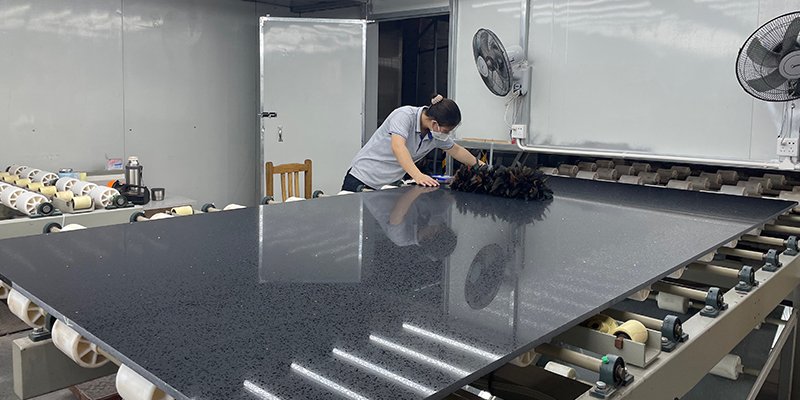
Quality is not an accident; it's the result of strict, consistent processes. In my factory, every single slab goes through a series of rigorous tests before it's approved for shipping. We test for impact resistance, thermal shock, and chemical stability to ensure our slabs can handle real-world use. I'll never forget a client from the USA who came to us after a terrible experience. His previous supplier sent him slabs that cracked during installation. Before he placed an order, we walked him through our entire quality control process and sent him samples to test himself. That transparency built the trust he needed. Quality also extends to logistics. A competitor's shipment to Australia arrived with half the slabs damaged from poor packing. We showed that same client how we use reinforced wooden crates and protective padding to ensure every slab arrives in perfect condition.
Verifying Quality: From Factory to Site
A manufacturer's commitment to quality should be evident in their processes. Ask for details and don't hesitate to request proof.
| Quality Check | What to Look For | Why It Matters |
|---|---|---|
| Hardness/Scratch Test | Resistance to scratching from common objects. | Ensures the surface remains pristine in high-traffic areas like kitchens. |
| Stain Resistance Test | No staining from common household items like wine, coffee, or oil. | Demonstrates the non-porous nature of the slab, ensuring easy maintenance. |
| Heat Resistance Test | No damage or discoloration from brief contact with hot pans. | Critical for kitchen countertop applications and overall durability. |
| Packaging & Shipping | Reinforced crates, internal padding, secure loading. | Protects your investment and prevents costly delays and damages during transit. |
Conclusion
In summary, choosing the right manufacturer comes down to verifying quality, product range, value, and support. A true partner will deliver on all fronts for your project's success.



